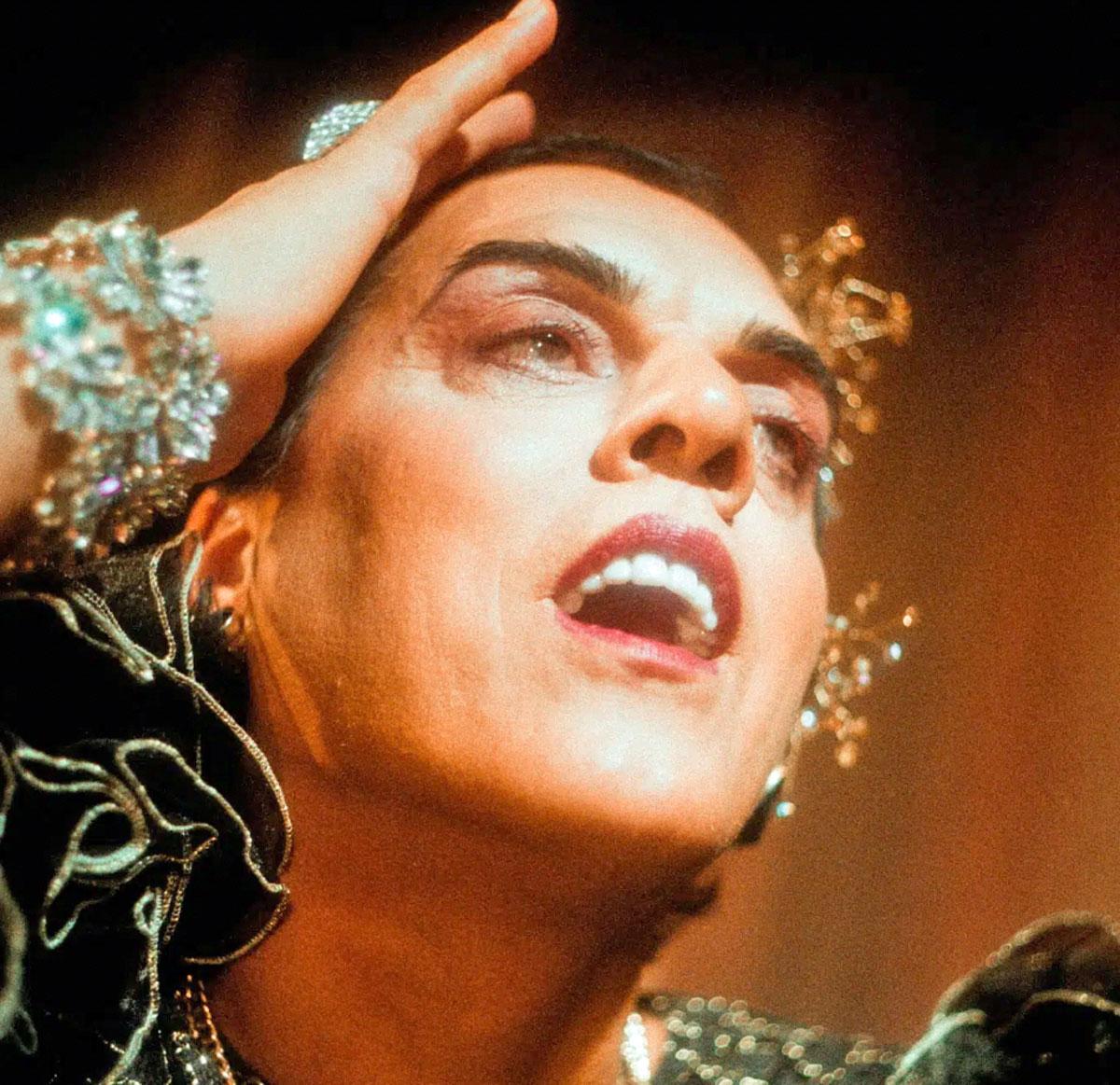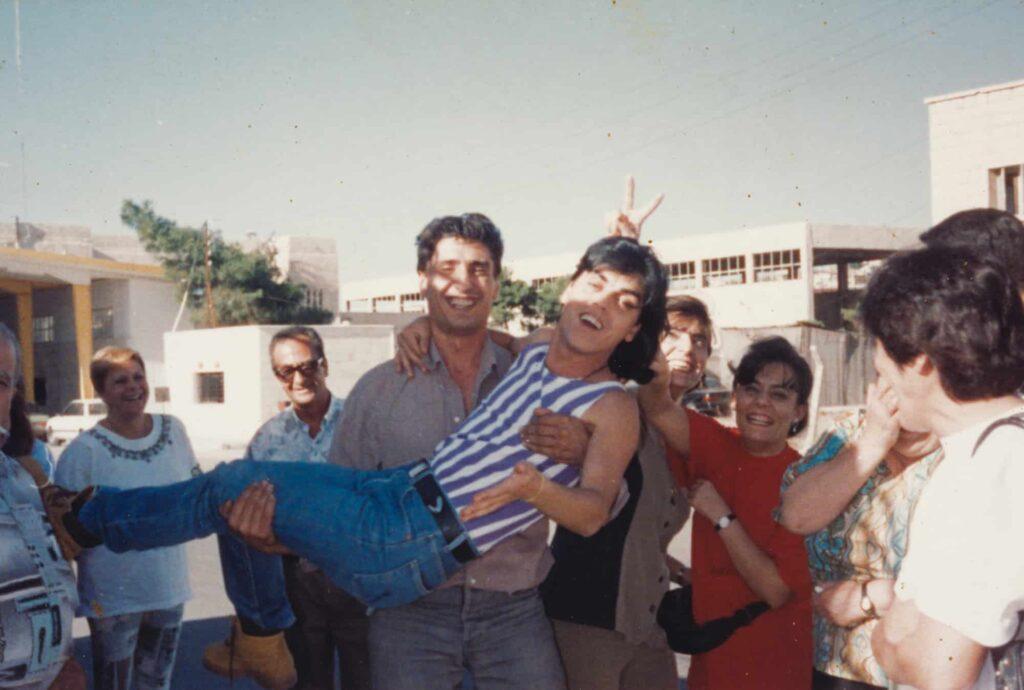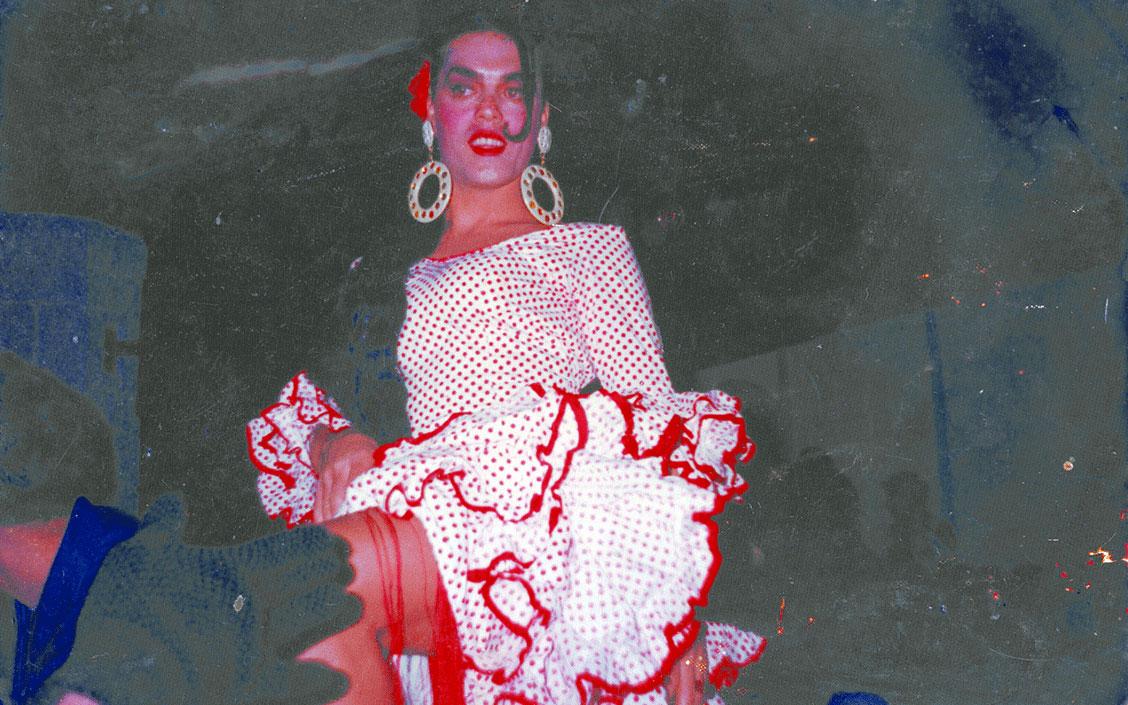Em Abed: queer in the Arab world (first in a series)
Colin Stewart is a 45-year journalism veteran living in Southern…
Em Abed, a pioneering Lebanese trans woman, is one of the people highlighted in the exhibit “Habibi, The Revolutions of Love” currently on display at the Arab World Institute in Paris. (First in a three-part series).
Stay up-to-date: CLICK for a free subscription to Erasing 76 Crimes

An excerpt from an article on “Being Queer in the Arab World”, which reviews some of the exhibited works by 23 artists from the Arab-Muslim world, Afghanistan and Iran:
We are quickly caught up in the images of Lebanese photographer and director Mohamad Abdouni. We see the same face again and again. That of the trans woman Em Abed, represented at various moments of her life, throughout a collection of photos unearthed from her youth, taken by strangers, on a bus, at a party… Sometimes Em Abed is dressed in jeans and a T-shirt, without make-up. At other times, she is wearing a French cancan dress and lipstick.

“A figure in the trans world, Em Abed was one of the first to dare to dress as a woman and walk around Beirut in the 1990s,” says [Élodie Bouffard, the exhibition’s curator]. But the country’s history did not hold her back. Like many members of this community, she was buried in oblivion… until Mohamad Abdouni decided to rehabilitate her memory and that of these pioneers of the genre, in the fourth issue of his magazine Cold Cuts, dedicated to the promotion of queer cultures. It is an extract from this work that is presented here.
To bring his series, “Treat Me Like Your Mother”, to life, Abdouni collaborated with Helem, an organisation that defend queer rights, and with the Fondation Arabe pour l’image (Arab Image Foundation). Using archival images and studio portraits, the photographer tells the story of ten trans women: their childhoods, their traumas during the Lebanese war, their professions, their families, their joys…
“Mohamad Abdouni is making a militant archive, in order to found the history of the Lebanese queer community, to make the trajectories of these women the stages of a historical fresco, to prevent them from being forgotten”, explains the exhibition’s curator. The title of the project makes it easy to imagine the artist’s intention: that everyone should respect these women and their lives as they would respect their own mothers. After being the stars of Beirut at the end of the 20th century, most of these trans women have fallen into poverty. Abdouni offers them a place again, this time as works of art.





